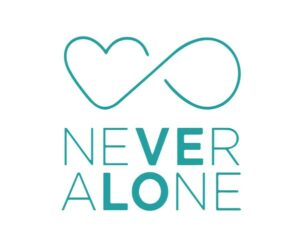NEW YORK, July 18, 2023 /PRNewswire/ — The Chopra Foundation (CF), a global nonprofit organization committed to fostering a more just, healthy, sustainable, and joyful world, is delighted to announce our focused effort to bring this mission to communities and individuals across Africa. The Foundation has formed strategic partnerships with impactful non-profit organizations already making a difference across multiple African countries with the intention of leveraging their collective strengths and expertise to effect meaningful change on a large scale.
Through these collaborations, we aim to create a ripple effect that will reverberate throughout communities and transform lives across a wide range of crucial issues, including universal education and poverty alleviation, and with an initial focus on two key areas: eradicating Gender-Based Violence including Female Genital Mutilation/Cutting (FGM/C); and bridging the hunger and nutritional gaps prevalent within communities.

Addressing gender-based violence, specifically FGM, is a critical aspect of the CF’s vision. We are proud to bring this to life in partnership with The Girl Generation, a non-profit organization operating across multiple African countries, including Kenya, Somaliland, Ethiopia, Senegal, and more, to create a world where girls have agency, freedom and are free from violence. The CF contributes through fundraising and by offering consciousness-based mental health resources that address survivors’ holistic well-being through our Never Alone Mental Health Initiative. Our ultimate goal is to create a network of support and resources that fosters empowerment and contributes to a more equitable and safe society.
Leyla Hussein, Global Advocacy Director for TGG, said, “TGG has made remarkable strides in their work to support FGM survivors , bringing attention to this critical issue and advocating for change. Their partnership with the Chopra Foundation has been invaluable, combining their expertise, resources, and networks to amplify their impact.”
Gabriella Wright, co-founder of Never Alone, shared her vision that “together, we are moving forward to create a powerful movement of loving action by providing young girls and women with tangible mental hygiene tools that will support their path to freedom from suffering, self-actualization and leadership within their homes, communities, and beyond.”
Closing the hunger and nutritional gaps within communities is another fundamental objective of the CF’s initiative. In partnership with Cup of Uji, a Kenya-based non-profit, the CF is fundraising to provide meals to less privileged primary-school children, and in the long-term, is focused on empowering communities to utilize local herbs and spices to enrich their meals with essential nutrition. This long-term vision seeks to create a sustainable and locally driven approach to address hunger and malnutrition, ensuring that communities are consuming nutritional food that is also rooted in the wisdom of their own traditions and resources.
Francis Otieno Amonde, Founder and Executive Director of Cup of Uji, believes the collaboration with the Chopra Foundation will be crucial in tackling classroom hunger, teenage pregnancies, child marriages, nutrition, education, and mental health issues among underprivileged school children in Kenya. This partnership aims to alleviate poverty and drive positive change in the communities they serve.”
Poonacha Machaiah, CEO of the Chopra Foundation, reflected on this important work, stating that “The CF is proud to announce the launch of our community initiatives in Africa. Our partnerships with The Girl Generation and Cup of Uji demonstrate our commitment to nurturing the whole person – body, mind, and spirit – and building communities that can thrive today and into the future.”
For more information about the Chopra Foundation’s Africa Initiative and to donate to this effort, please visit https://choprafoundation.org/africa/
About The Chopra Foundation and Never Alone
The Chopra Foundation is a 501 (c) (3) organization (#36-4793898) dedicated to improving health and well-being, cultivating spiritual knowledge, expanding consciousness, and promoting world peace to all members of the human family. The Foundation’s Never Alone movement will be providing the world with the tools to proactively pursue their path to joy and freedom from suffering.
About The Girl Generation
The Girl Generation (TGG)-Support to the Africa Led Movement to End FGM/C Programme (ALM), is a consortium led by Options Consultancy Services and includes Amref Health Africa, ActionAid, Orchid Project, Africa Coordination Centre for Abandonment of FGM/C and University of Portsmouth. The programme envisions a world where girls and women can exercise their power and rights and have expanded choice and agency and be free from violence, including FGM/C.
About Cup of Uji
Cup of Uji is a non-profit school feeding organization based out of Kenya, Africa, founded by Francis Otieno Amonde in 2011. Cup Of Uji started with 1 school, Nyatwere Primary School and has grown to add 10 more schools. Cup of Uji provides Porridge supplies: porridge flour and sugar to select schools and leaves the school cooks to prepare and serve porridge to all learners on school-going days and the same applies whenever we are able to provide a lunch of rice and yellow beans.
